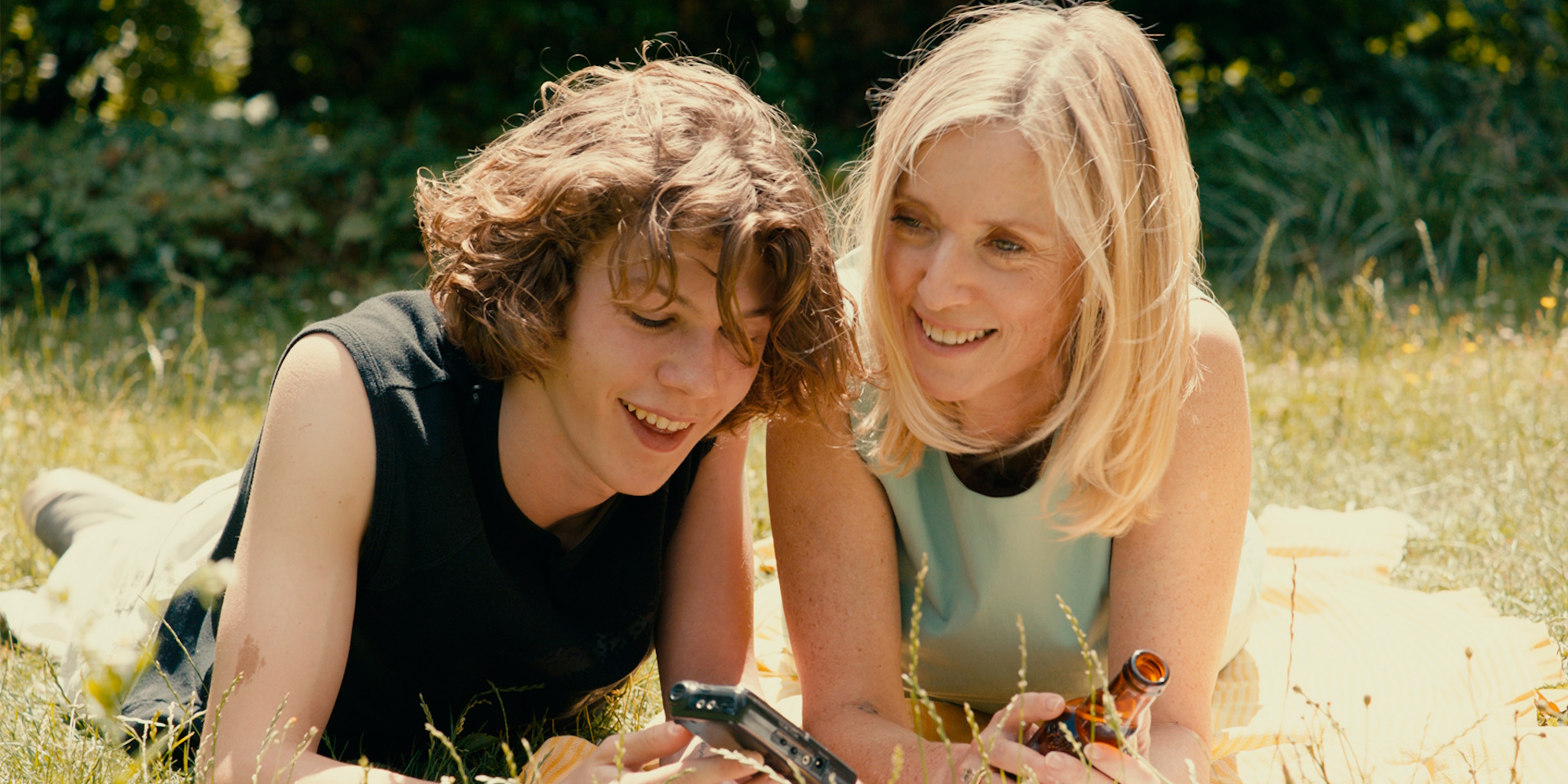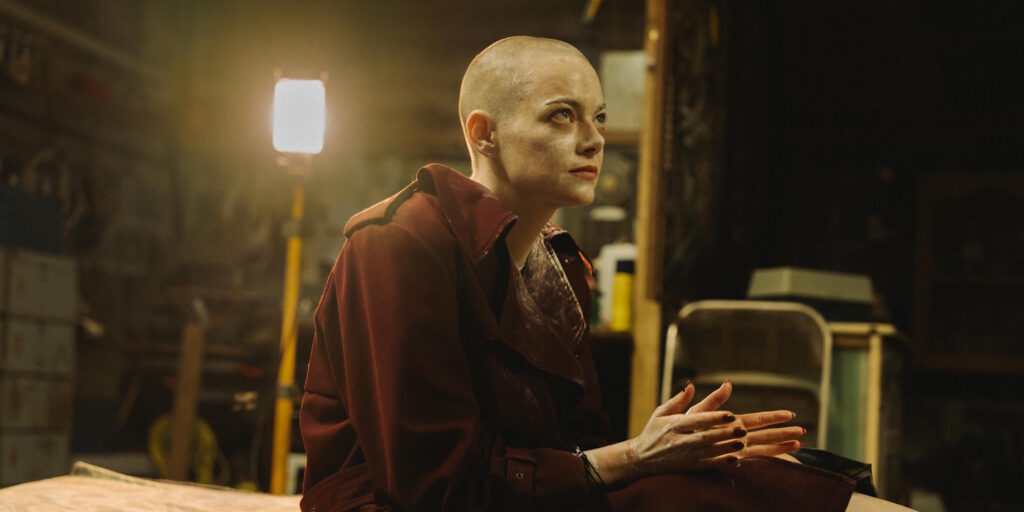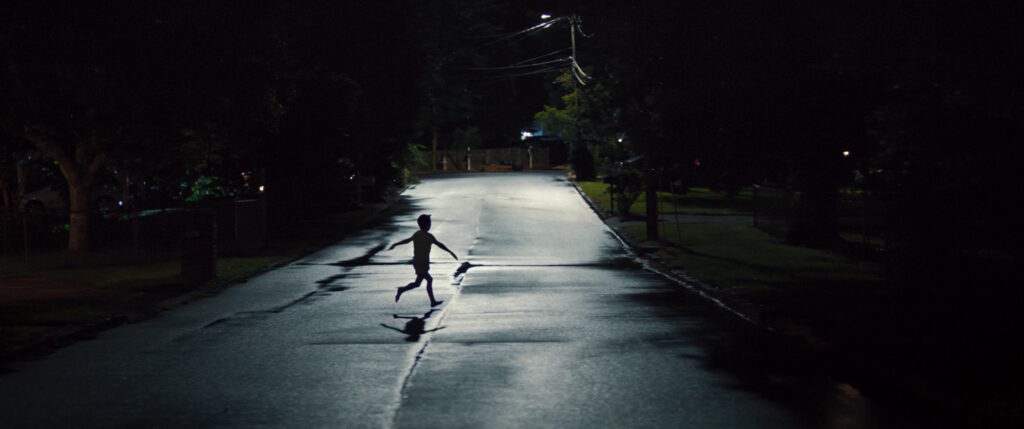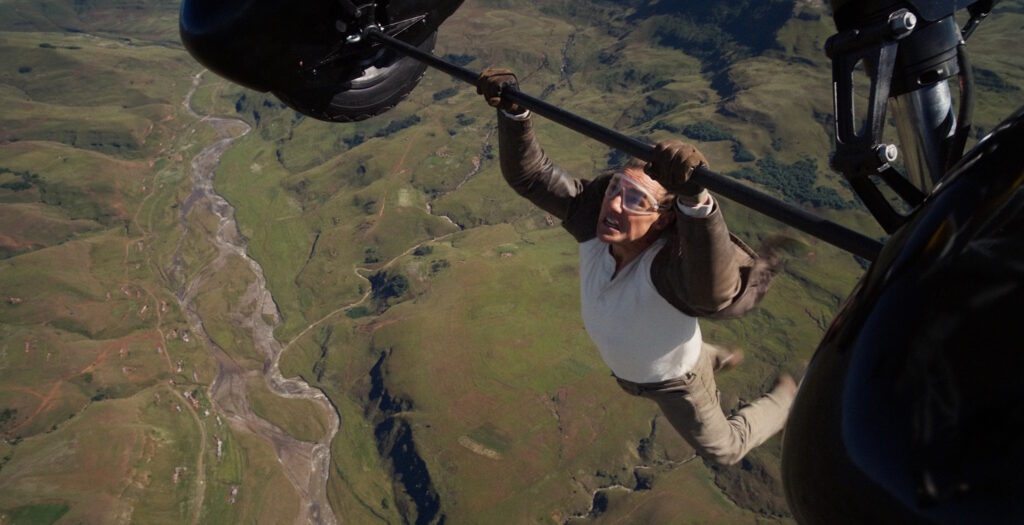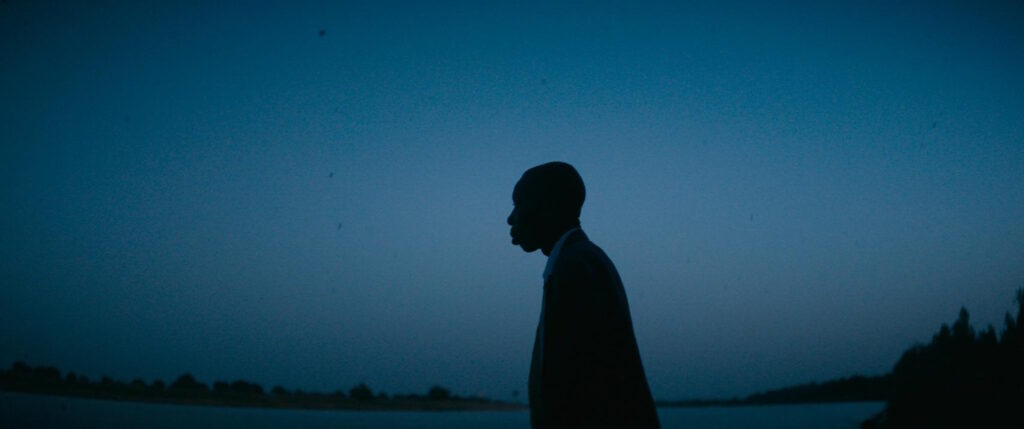By all appearances, Anne (Léa Drucker) has an enviable life. Fiftyish, married, and well off, she has built a reputable and successful career as an attorney, advocating for young sexual-assault victims. She and her slightly older husband, Pierre (Olivier Rabourdin), have adopted two young daughters whom they lavish with attention at their tasteful, luxurious home in the Paris suburbs. Pierre works long hours at some nonspecific corporate job that leave him testy and exhausted, but he nonetheless appears to be a loving and devoted man. There is no indication that Anne is beset by the usual bougie ennui or that she is in any way unsatisfied – either professionally, emotionally, or sexually. There is no hint of disingenuousness when she professes her lust for her husband’s “lived-in” body, conceding that she always adored older men. She is not the sort of woman who seems to harbor a secret, unscratched itch.
This makes it all the more confounding when, one idyllic summer, Anne’s carefully curated existence is upended by the abrupt arrival of Théo (Samuel Kircher), Pierre’s 17-year-old son from his first marriage. A negligent delinquent with a massive chip on his shoulder, Théo quickly makes himself at home, much to Anne and Pierre’s frustration. He lounges about shiftless and shirtless, scattering his smashed cigarette butts around their influencer-perfect home. However, he quickly bonds with his little stepsisters, and Anne ultimately resolves to offer a counterweight to Pierre’s palpable exasperation with the boy. She plays the part of the level-headed diplomat, offering to let his infractions slide – even, in one instance, a fairly egregious inside-job burglary – if he makes a good-faith effort to engage with family time. And so Théo does, for a time, his interactions with Anne gradually thawing into something warmer and more … intimate.
Canny viewers may have a sense where this is all headed, even if they didn’t clock that “un film de Catherine Breillat” credit at the beginning. Ten years after her “final” feature, the searing, semi-autobiographical Abuse of Weakness (2013), the provocative French filmmaker has emerged from retirement with Last Summer, a outwardly straightforward but psychologically knotty drama centered on the most taboo of erotic impulses (a couple of them, in fact). The subject of the forbidden urge is, of course, old hat for Breillat (Romance, Sex Is Comedy, Anatomy of Hell), and there’s something admittedly delicious about the notion of one of France’s most contentious living directors being called back into action by the alarming ascension of stepmom-stepson scenarios in mainstream pornography.
Yet what makes Last Summer Breillat’s most compelling feature in over 20 years – and one of the most thoughtful and focused films in her entire oeuvre – is how the more prurient aspects of its plot are somehow the least relevant. To be sure, the filmmaker doesn’t skimp on the sex scenes, although these are consistently presented in a way that is naturalistic yet impressionistic, full of close-ups and heavy, urgent breathing. However, Last Summer isn’t really about the fleshy contours of an older woman’s lust for an adolescent boy (who also happens to be her stepson). It’s about the irrational urge to torpedo your life for no reason whatsoever, to listen to the intrusive voice that whispers “jump” when you stand at the precipice of a great height. Why the unbidden temptation to knock over a priceless vase, to stick a finger into a spinning fan blade, to push the red button labeled “Do Not Push”? Breillat offers no pat answers to this particular mystery of the human mind, but rarely has it been presented with such devastating clarity and precision.
The film is a relatively faithful remake of the 2019 Danish feature Queen of Hearts, but Breillat excises the more anguished, violent melodrama of the scenario in favor of deeper psychological portraiture. Drucker is in every scene, and both her performance and Breillat’s direction are essential to the film’s aim of presenting the sexual relationship between Anne and Théo as a kind of madness. Drucker betrays little hint of repressed desire, even as her dirtbag stepson shows off his lanky, hairless torso and makes prodding comments about her sex life. She does respond emotionally to the apparent authenticity of his interest, opening up a bit about her past after a beer or two, but there’s something queasily insidious about how easily she acquiesces to his insistent line-crossing. We can practically see the gears whirring in Anne’s head as Théo touches her arm in an overly familiar way: “I should stop this, but what if I didn’t? Where exactly would this end?” It’s not Anne’s animal lust that wins out so much as her morbid curiosity.
Cribbing a bit from her contemporary Claire Denis, Breillat breaks up the intensity of her scenario with narrative ellipses, skipping ahead by days or weeks as the dynamic between Anne and Théo shifts. There’s a nervous, thriller-adjacent aspect to the story that cuts through the film’s sun-dappled, breezy setting, such as the way a recording of a vague but potentially incriminating conversation lurks just off-screen, like a bomb that hasn’t yet detonated. However, Last Summer is the sort of film that often zigs when we expect it to zag. When Anne’s transgressions are inevitably exposed, she shifts with smooth calculation from guilt-wracked apprehension to lawyerly throat-slitting. There’s no sobbing confession, which just makes Breillat’s characteristically aloof, nonjudgmental approach to the material cut all the deeper. Our empathy for Anne wrestles continually with our growing realization that she is likely capable of anything now that she has chucked a Molotov cocktail at her own life.
Théo might be a horny little shit, but he’s still a child playing children’s games. Anne is, in comparison, a shark. She denies, deflects, and works the proverbial judges, but her unwillingness to permanently quit her stepson – “This can never happen again” is uttered over and over – highlights how little weight rationality carries here. Anne has become addicted, less to the physical sex per se than to the reason-defying thrill of playing with fire. The gestalt of her deceptions, hypocrisy, and recidivism creates a delectable frisson that’s as stimulating to her as any illicit drug. The thrills elicited by a master filmmaker like Breillat are comparable. Last Summer invites us to be both anxious and baffled, sympathetic and appalled, all at once. By the end, we might not be any closer to understanding Anne’s behavior, but we might discern something of our own absurd compulsions in its outlines.
Last Summer screens nightly at 7:30 p.m. on Aug. 2 – 4 at the Webster University Film Series.
